
REFLECTIONS
on WORDS of the
NEW TESTAMENT

REFLECTIONS
on WORDS of the
NEW TESTAMENT

W. E. Vine

with reflections by
Gregory C. Benoit

2011 by Thomas Nelson, Inc.
All rights reserved. No portion of this book may be reproduced, stored in a retrieval system, or transmitted in any form or by any meanselectronic, mechanical, photocopy, recording, scanning, or otherexcept for brief quotations in critical reviews or articles, without the prior written permission of the publisher.
Published in Nashville, Tennessee, by Thomas Nelson. Thomas Nelson is a registered trademark of Thomas Nelson, Inc.
Thomas Nelson, Inc. titles may be purchased in bulk for educational, business, fund-raising, or sales promotional use. For information, please e-mail SpecialMarkets@ThomasNelson.com.
Unless otherwise indicated, Scripture quotations are taken from THE NEW KING JAMES VERSION. Copyright 1982 by Thomas Nelson, Inc. Used by permission. All rights reserved.
Scripture quotations noted KJV are taken from The Holy Bible, King James Version.
Writing, editing, and design by Gregory C. Benoit Publishing, Old Mystic, CT. 
ISBN 978-1-4185-4922-0
Printed in the United States of America
11 12 13 14 QG 5 4 3 2 1
CONTENTS
William Edwy Vine (18731949) published his Expository Dictionary of New Testament Words in 1940, and it became an immediate success. It was different from ordinary Greek dictionaries and lexicons because it was organized according to the English translations of Greek words, rather than alphabetically by the Greek words themselves, and specifically according to the English translations found in the King James Version (or Authorized Version [av]) and the Revised Version (rv) of the Bible. This approach made his work a very valuable tool for the average Christian who has no background in Greek, as one could simply look up a word found in ones English translation of the New Testament to learn about its original Greek counterpart.
Vine intended his book to be used as a reference toolas it has been for more than seventy yearsyet there is another element to it that is also of great value. The author frequently included interesting insights into word meanings, origins, and practical applications that are a treasure of a different sort, offering suggestions on how to apply Gods Word to ones life today, unexpected glimpses of Gods character, sobering reflections on the character of mankind, and much more.
The purpose of this book is to emphasize those practical aspects of Vines writings. In it, you will still find the meat of Vines information concerning Greek words and concepts used in the New Testament, together with highlights of where those words are used in Scripture. But you will also find that each entry offers some further insight, pointing out how that technical information has very practical application in your daily life. It does not present all of Vines definitionsnot by a long shotbut it offers selected words that will have a bearing on your walk with God and your worship. As such, it is intended to be an aid in personal growth and enrichment.
Readers today who use other modern translations might find that some words in this book are different from the words used in their own Bibles. For example, expiation and propitiation are used in the AV and RV, while many newer English translations use atonement. (These words, incidentally, are all addressed in this book.) All Scripture quotations in this edition are from the New King James Version (NKJV). But regardless of what translation you prefer, the entries in this book will still provide deep insight into the Scriptures, the character of God, and the practical application of His Word in your life today.
A

A
Abba is an Aramaic word found in Mark 14:36; Romans 8:15; and Galatians 4:6. It is a more intimate name than Father, although both names are always used together in the New Testament as Abba, Father. (This is probably due to the fact that Abba had effectively become a proper name in its own right, similar to the more formal use of Father, and Greek-speaking Jews had added the Greek  [father] to their common use.) In the Gemara (a Rabbinical commentary on the Mishna, the traditional teaching of the Jews), it is stated that slaves were forbidden to address the head of the family by this title. The word Abba was the term used by little children to address their father, similar to our modern use of Daddy, and as such it was based upon a childlike, untested trust. The name Father, by contrast, expresses a more mature and well-reasoned expression of the parent-child relationship. The two together, however, express both a childlike love and an intelligent confidence.
[father] to their common use.) In the Gemara (a Rabbinical commentary on the Mishna, the traditional teaching of the Jews), it is stated that slaves were forbidden to address the head of the family by this title. The word Abba was the term used by little children to address their father, similar to our modern use of Daddy, and as such it was based upon a childlike, untested trust. The name Father, by contrast, expresses a more mature and well-reasoned expression of the parent-child relationship. The two together, however, express both a childlike love and an intelligent confidence.

These distinctions between the terms Abba and Father underscore some important elements in a Christians relationship to God. First, Abba expresses the absolute trust that a child instinctively places in his father, calling upon the Almighty God of Creation as Daddy. Such intimacy ought to take a believer by surprise; after all, we are mere sinners addressing a holy and righteous Godthe same God who could only be approached by one man on special occasions under the law of Moses, and even that was done in the deepest humility. But Jesus ended those restrictions and provided free access into the presence of the holy God, even by the most common man. The believer does well, of course, to also remember that Daddy is God the Father, the omnipotent Creator of the universe. This is the element of spiritual maturity, when a believer can hold his Lord in deep awe and honor, while simultaneously rejoicing to run to His presence as a child races to meet his father, crying out Daddy! Daddy!
Finally, it is significant that the term abba was restricted to family members only. Slaves in Bible times were frequently given privileges and treated as almost family within godly homes, but they were never permitted to address their lord and master as abba. Jesus said to His disciples, No longer do I call you servants, for a servant does not know what his master is doing; but I have called you friends, for all things that I heard from My Father I have made known to you (John 15:15). And Paul took us beyond being the friends of God to the point of adoption, for it is the privilege only of children to refer to the Father as Daddy. For as many as are led by the Spirit of God, these are sons of God. For you did not receive the spirit of bondage again to fear, but you received the Spirit of adoption by whom we cry out, Abba, Father. The Spirit Himself bears witness with our spirit that we are children of God (Romans 8:1416).
Next page

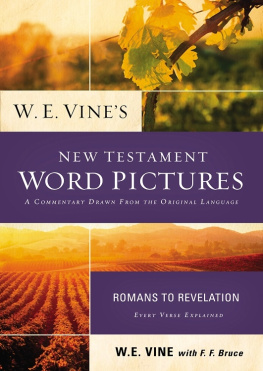
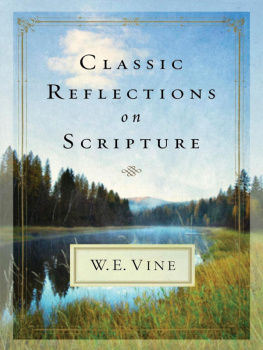
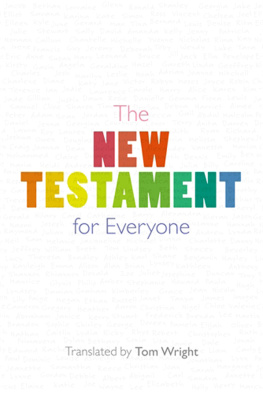

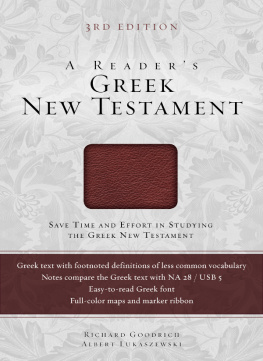
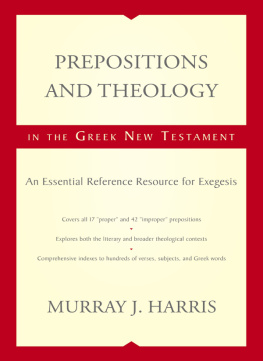
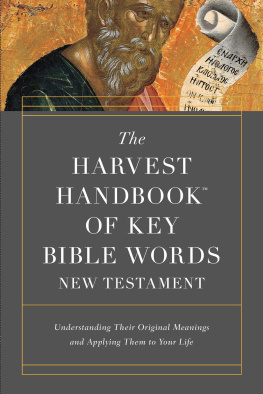
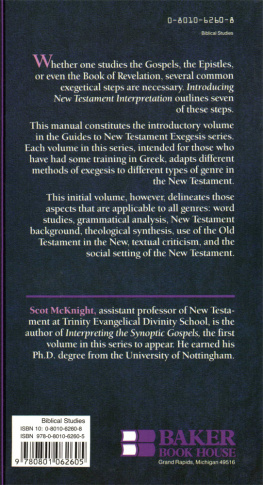
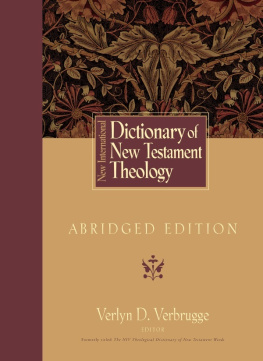
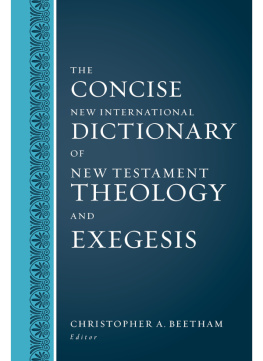
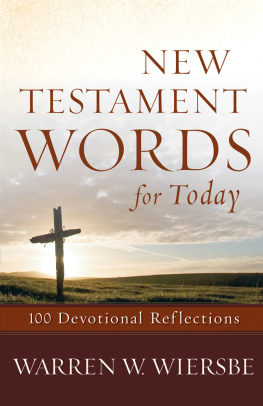








 [father] to their common use.) In the Gemara (a Rabbinical commentary on the Mishna, the traditional teaching of the Jews), it is stated that slaves were forbidden to address the head of the family by this title. The word Abba was the term used by little children to address their father, similar to our modern use of Daddy, and as such it was based upon a childlike, untested trust. The name Father, by contrast, expresses a more mature and well-reasoned expression of the parent-child relationship. The two together, however, express both a childlike love and an intelligent confidence.
[father] to their common use.) In the Gemara (a Rabbinical commentary on the Mishna, the traditional teaching of the Jews), it is stated that slaves were forbidden to address the head of the family by this title. The word Abba was the term used by little children to address their father, similar to our modern use of Daddy, and as such it was based upon a childlike, untested trust. The name Father, by contrast, expresses a more mature and well-reasoned expression of the parent-child relationship. The two together, however, express both a childlike love and an intelligent confidence.